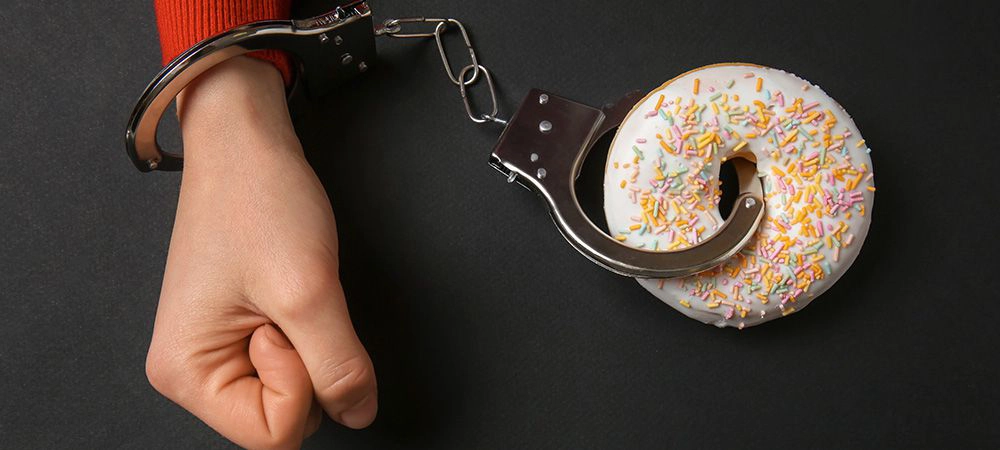Food Addiction Treatment
The term “addiction” is usually associated with substances like drugs and alcohol. Traditional wisdom dictates that in order to “break” the addiction, you must safely withdraw from the substance and then never use it again. Addiction rehab programs are designed to help you explore the underlying causes of the addiction and develop alternative coping strategies. By the time you return to the “real world”, you should be equipped to handle all of the challenges that life throws at you without needing to use drugs or alcohol.
But what happens if the substance you are addicted to is a necessity of life, like food? We all have to eat to survive: quitting food is not a viable solution to a food addiction. Furthermore, it can be difficult to tell when you or someone you love has a food addiction. People tend to overuse substances to reduce stress, or because the substances make them feel good.
This describes every single one of us at some point in our lives. We all have days when we eat a big bowl of ice cream or a pizza not because we’re hungry, but because we feel upset or stressed and we just want to feel better. But not all of us are addicted to food. How do you tell when you have crossed the line from “normal” stress eating to addiction?
In this article, we will talk about some of the signs of food addiction, and the ways in which food addiction is treated.
Why Is Food Addiction So Difficult To Pin Down?
Because food addiction does not have its own entry in the Diagnostic & Statistical Manual Of Mental Disorders (DSM-V), diagnosing it can be tricky. Furthermore, not everyone agrees that food addiction is real. This is because most other addictions are tied to a specific substance, like nicotine or cocaine. Researchers have not been able to identify a substance within food that would trigger an addiction.
However, it can just as easily be argued that there are several addictions not related to substances. Examples include sex addiction and gambling addiction. Much like these, food addiction is generally thought to be more behavioural than substance-based.
Obviously, everybody eats. Food is essential for survival. Our bodies have efficient ways of telling us when we need to eat: we feel hungry, or we might get a headache or feel light-headed.
Food is also at the centre of many social gatherings. Christmas, weddings, and birthdays are celebrated with food. We make dinner plans with friends not because we’re hungry, but because sharing a meal and catching up are activities that naturally go together.
And sometimes, we eat simply because we feel like it. Almost everyone has eaten a bowl of ice cream or a piece of cake in response to stress or heartbreak. Seeking comfort in food from time to time is part of being human.
The reason this seems to work is that, as with many pleasurable activities, eating can trigger a release of “feel-good” chemicals such as dopamine. The problem is that you can start to rely on the resulting feelings of calm or euphoria, and you seek out those feelings through food with increasing frequency.
It can be hard to tell if your comfort eating is within “normal” bounds, or if it has become a cause for concern.
Signs Of A Possible Food Addiction
It is important to note that food addiction comes with a lot of stereotypes. Many people assume that those perceived to be obese must be addicted to food, but this is a highly inaccurate assessment. In fact, many people who are clinically obese have underlying medical conditions and are following highly restrictive eating plans. By the same token, a lot of people perceived to be of “normal” weight suffer from food addictions.
Some signs to look out for include the following:
- You frequently eat more food than you can physically tolerate, even to the point of feeling sick
- You decline or cancel social engagements or functions in order to spend time eating
- You have started eating in secret and hiding your food consumption from others
- You are spending large sums of money buying food for the purpose of bingeing
- You are experiencing sleep disorders and chronic fatigue
- You are experiencing physical ailments, like headaches, trouble breathing, and digestive complaints
- You feel anxious if the food of your choice is not available to you
- You are having suicidal thoughts related to food
What To Do If You Think You Are Addicted To Food
Food addiction comes with significant health risks, including heart disease, diabetes, liver failure and various cancers. It can also be linked with mental illnesses like anxiety, depression, and post-traumatic stress disorder (PTSD). In order to reclaim your physical and mental health, it is important that you get help as soon as possible.
Inpatient Treatment
If you choose an inpatient food addiction program, you will reside in a facility for a set period of time, typically several weeks. The focus of your treatment will include:
- Physical examinations to ensure that any illnesses or ailments arising from the food addiction are being appropriately managed
- Nutrition counseling to help you learn good food habits that are sustainable
- Individual and/or group counselling to help you resolve the underlying causes of the food addiction
A benefit of inpatient treatment is that you can leave all of your worries and stresses behind and focus on your recovery.
Outpatient Treatment
Of course, inpatient treatment is not an option for everybody. Cost is a barrier for some, and not everyone has the ability to step out of their lives for weeks at a time. Outpatient treatment focuses on the same elements, but you can continue to live at home and participate in your daily life. Outpatient food addiction treatment can be effective for people who have both high motivation to recover and a strong support network of family and friends.
Food Addiction Treatment In Toronto
At Addiction Rehab Toronto, we value the individuality of all people. No two food addiction stories are the same, and we believe that everyone should have their own unique recovery plan. We will put together a customized food addiction treatment program that takes into account your needs and circumstances. Call us today for more information.







